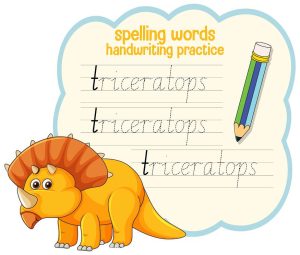Continuous and Comprehensive Education – Meaning and Benefits

What is the purpose of education? Is it simply to instil bookish knowledge in kids? Are kids merely vessels for information? Or is there a way to make learning more holistic and child-centric? Continuous and comprehensive evaluation (CCE) focuses on making this a reality. Traditional teaching is uninspiring and repetitive. It focuses too much on learning something by heart and often requires students to exhibit their abilities to learn by heart in one single exam. On the other hand, a continuous and comprehensive evaluation is a student evaluation system that covers all aspects of student growth.
Before discussing the features and benefits of CCE (continuous and comprehensive evaluation), let us briefly discuss what it means.
Meaning of ‘Continuous’
Continuous means regular. Thus, the term in the concept of continuous and comprehensive evaluation refers to a regularity or periodicity in evaluation. Student growth is a continuous process. Thus evaluation must also be periodic and cyclical. Thus, continuous and comprehensive evaluation takes care of a major criticism of traditional evaluation patterns. Instead of one final exam, continuous and comprehensive assessment takes place periodically throughout the school year. They are incorporated into the teaching and learning process. Thus, students are graded as they learn. This brings the focus back to understanding instead of recall.
Meaning of ‘Comprehensive’
The second term in continuous and comprehensive evaluation is ‘comprehensive’. This means that CCE is very thorough and evaluates both scholastic and co-scholastic aptitudes. The scope of CCE is as follows:
- Scholastic and Co-scholastic aptitudes
- Tools and Techniques
- Learning Outcomes
Through continuous and comprehensive assessment, learners are evaluated in a wide range of traditional subjects like mathematics, science, languages and social sciences. Besides these, they are also evaluated in co-scholastic subjects like art, sports, music and dance. In addition, co-scholastic abilities like attitude, life skills, teamwork and habits are also evaluated.
CCE is comprehensive in terms of the tools and techniques it uses for evaluation. These include elements like interviews, surveys, rating scales, checklists, analyses, and portfolios and include assessments including tests, presentations, assignments, projects and debates. Thus, CCE (continuous and comprehensive education) ensures that all aspects of student growth are meticulously recorded and assessed.
CCE is comprehensive in nature. It is used for assessing various learning outcomes like remembering, understanding, evaluating, analysing, evaluating and creating. It is used to evaluate learners across different skills like cognitive, emotional, physical and psycho-motor.
Thus, as seen above, continuous and comprehensive evaluation is an effective way to measure learners’ progress periodically and comprehensively. Next, let us briefly look at the nature and purpose of CCE.
Nature of CCE
As seen above, CCE is comprehensive. It is incorporated seamlessly into the teaching and learning process, thus enabling learners to gauge their progress consistently. It motivates learners to be confident and positive throughout the school year. It relies on teachers to honestly and unbiasedly grade learners. Thus, it puts the onus on the students and teachers to be active participants in the teaching and learning process.
Benefits of CCE
Finally, let us look at the benefit of continuous and comprehensive evaluation. CCE helps reduce the anxiety and stress of the learners. It helps parents, teachers and learners in the following ways:
- Continuous and comprehensive education reduces the dropout rate. Since learners are less anxious about exams, CCE is an ideal way to reduce the dropout rate.
- In CCE, learning is more important than exams and test scores. This leads to holistic, all-round development of learners. They grow in character, and not just in bookish knowledge.
- As mentioned before, CCE leads to the holistic development of learners. Since it focuses on both scholastic and non-scholastic aspects, CCE is ideal to create a well-balanced individual eager to learn and flourish.
- CCE makes learners physically fit, emotionally strong, academically sound and socially adjusted. By making sure that learners interact with people beyond their own peer group, CCE ensures that individuals gain the required life skills to be independent learners. They learn empathy, people skills and the importance of teamwork.
- Through CCE, learners get more time and opportunities to develop their interests, hobbies and passions. If a learner is interested in something besides academics, they will be given the chance to flourish in the career of their choice. CCE builds in both educators and parents that one’s career path is not necessarily an extension of one’s academic journey. Instead, one’s hobbies and vocations can become one’s career path.
- CCE promotes a learner-friendly environment. Thus, learners are more deeply invested in the learning process. By making sure that learners get paid individual attention, CCE ensures that each learner carves a customised path for themselves.
- CCE equips learners with essential life skills, especially critical thinking and creative thinking. Learners also learn to cope better and adjust well, thus enabling them to flourish in competitive environments in the future.
Thus, in short, CCE
- Focuses on a two-fold approach to evaluation – regular, periodic assessments along with comprehensive assessment of learning outcomes.
- Deals with cognitive, mental, emotional, and social aspects of a learner’s development.
- Evaluates the cognitive abilities of remembering, analysing, applying, evaluating and creating.
- Focuses on both scholastic and non-scholastic aspects
- Works on non-scholastic aspects like attitude, beliefs, confidence, motives, interests and other personality traits.
Thus, the concept of continuous and comprehensive evaluation has developed out of a need to create more child-friendly and learner-friendly learning spaces. Schools and colleges offering CCE are often a notch above others. As a parent, if you’re searching for the perfect school for your kid, Billabong International School is the best option for you and your kid. Through CCE, Billabong International School assures you of having your kid’s best interests in mind. For more information, contact Billabong International School today.








